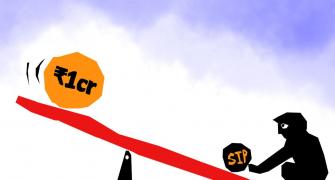Ever since the Facebook-owned messaging platform said it would loop a payments feature into its hugely popular app in the country, the market is aflutter with talks of an impending overhaul, even though the feature is still to launched in the country, reports Yuvraj Malik.

When WhatsApp launches payments, it is difficult to imagine any mobile payments players will survive, said Bhavin Turakhia, billionaire, serial entrepreneur and a poster boy for the start-up industry in the country.
Currently heading fin-tech start-up Zeta, Turakhia was speaking at a Matrix Partners-organised meet-up in Bengaluru (June 27), along with Kunal Shah, founder, Cred, who sold Freecharge to Axis Bank back in 2017.
"Just look at the experience," Turakhia said to the crowd, some of whom were using the beta version that allowed people to send money from within the chat-app, "would anyone use any other app?" Shah was in complete agreement.
Barely weeks since the Facebook-owned messaging platform said it would loop a payments feature into its hugely popular app in the country, the market is aflutter with talks of an impending overhaul, even though the feature is still to launched in the country.
Mobile payments players, already out on a limb, with wafer-thin margins, intense competition, government subsidies on digital payments and other challenges are preparing for the potential threat.
But the question is whether business as usual -- discounts and offers combined with aggressive advertising, will really work to foil the WhatsApp effect in the payments business?
For one the messaging app has huge social capital; with 200 million monthly active users (MAUs) from India alone it will have a big lead when it starts out.
This sets it up as the biggest threat for market leader Paytm, which launched in 2010.
Paytm, in which China's Alibaba has a significant minority stake, is already under pressure from rival Phone Pe (Flipkart owned) and the rapidly growing platforms on the Unified Payments Interface (UPI), an indigenous digital payments network.
Since August 2018, when the government rolled-out UPI, all major mobile payment companies have had to come onto to the network.
Ever since, companies have worked hard to differentiate themselves even as the core offering or use-case has remained the same.
Paytm went on to launch an in-app e-commerce site Paytm Mall, while PhonePe mirrored WeChat's super app approach by introducing a merchants store-front within its app.
But almost everyone, offered wide ranging discounts as a hook.
Discounts still continue to be the biggest differentiator in the business.
Having said that, both Paytm and PhonePe have made considerable in-roads with offline merchants, from neighbourhood kirana stores to street vendors.
Acceptability, by a wide-merchant base is a massive advantage.

WhatsApp has still to establish its credentials in the merchant space.
It may take over users in in the peer-to-peer (P2P) segment, but in the peer-to-merchant segment (P2M) its mettle will be tested, said Mahesh Makhija, partner and leader, digital and emerging tech, at consultancy EY.
P2M is also where the money is.
Like debit card transactions, where merchants typically have to pay a 2 per cent surcharge on the value of their transactions, as a facilitation fee for the service, mobile wallets have long waited to pass on a similar charge when the market is ready.
For most of the payments apps, it is time for pay back, given the investments incurred in on-boarding customers and building their networks.
The big fillip (Paytm was among the big beneficiaries) came with demonetisation that had people scrambling to find a solution to the cash ban and since then the numbers have swelled.
Several small players too set up mobile payment apps even though most of them have since perished or bought over.
For instance, Citrus Pay by PayU in 2016 and later in the year, PhonePe was acquired by Flipkart.
Given the period of intense competition that the mobile payment apps dealt with, discounts and special offers were the only way to keep customers coming back for more.
Balance sheets were red and only those supported by big investors stayed in the game.
In 2017, Google jumped in with Google Tez and re-branded it as Google Pay a year later.
The search giant continues to build on and lure users using troves of consumer data it gathered over decades.
Amazon Pay, the offering by tech behemoth and world's largest e-tailer, Amazon, was launched in 2019.
Now with WhatsApp getting into the mix, the battle is expected to get more brutal and the brands, old and new, will have to look at new ways to expand the customer base and keep the flock loyal.











